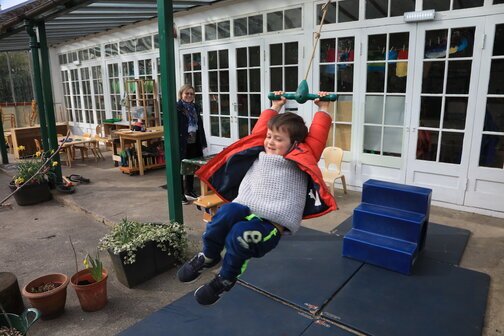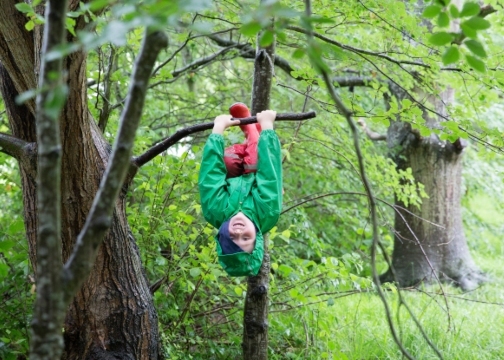Friedrich Froebel (1782 - 1852) was the inventor of kindergartens and a pioneer of early childhood education and care. Froebel’s work and writing changed the way we think about and value early childhood.
Froebel’s ideas were considered revolutionary in the 1850s but the principles of his work have since become part of modern, mainstream early years educational practice.
Froebelian principles

Unity and connectedness
Everything in the universe is connected. The more one is aware of this unity, the deeper the understanding of oneself, others, nature and the wider world. Children are whole beings whose thoughts, feelings and actions are interrelated. Young children learn in a holistic way and learning should never be compartmentalised for everything links.

Autonomous learners
Each child is unique and what children can do rather than what they cannot, is the starting point for a child’s learning. Children learn best by doing things for themselves and from becoming more aware of their own learning. Froebelian educators respect children for who they are and value them for their efforts. Helping children to reflect is a key feature of a Froebelian education.
The value of childhood in its own right
Childhood is not merely a preparation for the next stage in learning. Learning begins at birth and continues throughout life.

Relationships matter
The relationships of every child with themselves, their parents, carers, family and wider community are valued. Relationships are of central importance in a child's life.
Creativity and the power of symbols
Creativity is about children representing their own ideas in their own way, supported by a nurturing environment and people. As children begin to use and make symbols they express their inner thoughts and ideas and make meaning. Over time, literal reflections of everyday life, community and culture become more abstract and nuanced.

The central importance of play
Play is part of being human and helps children to relate their inner worlds of feelings, ideas and lived experiences taking them to new levels of thinking, feeling, imagining and creating and is a resource for the future. Children have ownership of their play. Froebelian education values the contribution of adults offering ‘freedom with guidance’ to enrich play as a learning context.

Engaging with nature
Experience and understanding of nature and our place in it, is an essential aspect of Froebelian practice. Through real life experiences, children learn about the interrelationship of all living things. This helps them to think about the bigger questions of the environment, sustainability and climate change.
Knowledgeable, nurturing educators
Early childhood educators who engage in their own learning and believe in principled and reflective practice are a key aspect of a Froebelian approach. Froebelian educators facilitate and guide, rather than instruct. They provide rich real life experiences and observe children carefully, supporting and extending their interests through ‘freedom with guidance’.
Froebel's principles and practice today
A practical guide from our Froebel Trust pamphlet series. Free to download.
PamphletsDownload a copy of our free poster to display in your school or setting:
Froebel's Gifts & Occupations
Discover the Gifts and Occupations Froebel created to support children’s learning and development.
Learn moreWant to know more about the Froebelian approach to early childhood?
If you are interested in developing a more in-depth understanding of Froebelian practice, principles and the history of kindergartens, have a look at our reading list.
Find out more about the life and work of Friedrich Froebel
Download a free PDF version of Peter Weston's book Friedrich Froebel : His Life, Times & Significance
To learn a thing in life and through doing is much more developing, cultivating and strengthening than to learn it merely through the verbal communication of ideas.


